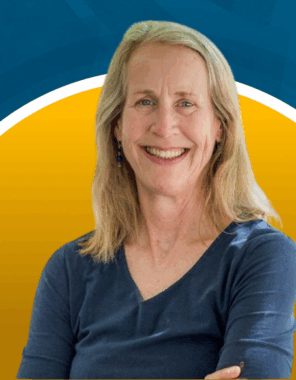What are your research interests and what types of projects are you currently working on?
Most of my work has to do with how we reduce driving. I’m currently involved in several projects with state agencies, including the California Air Resources Board and Caltrans, mostly looking at the empirical evidence produced by the research community around various possible strategies for encouraging people to drive less. For example, what if we improve transit? How much difference can that make? Or what if we invest in bicycle lanes?
What would you consider your most significant research contribution thus far?
I feel the impact I’ve had on the field is more about how people think about transportation. A lot of my early work was about how neighborhood design can shape travel behavior. That was not something people were talking about at the time, but there’s been a whole lot of work on this topic since then. I think some of my approaches to thinking about that question helped shape what has come since, such as my later work on bicycling as a mode of transportation, and again, I was one of the first to study this. I like to think that my earlier work helped to shape and inspire the growth in the research that came after mine.
I’ve recently written a book called Shifting Gears about a new way of thinking about transportation—how the profession thinks about its work, the ideas that underlie what we do in transportation. For example, much of what we do reflects the fact that we think of cars as providing freedom and define efficiency in terms of speed. I like to think my book is getting people to think differently.
What issues in transportation keep you up at night?
The fact that we continue to pour billions and billions of dollars into expanding the highway system at the same time knowing we need to get people to drive less if there is any hope of reducing greenhouse gas emissions by the amount we need to and by when we need to.
I’m also concerned about the impact of all of that driving, and all of that roadway space, on our communities and their quality of life, in particular with regard to safety. More driving means more emissions, more noise, more risk of injuries and fatalities. We made some good progress for a while, but now it’s stalled out.
Related to this is the growing size and weight of our vehicles. That definitely gives me nightmares. We’ve built a roadway system to move as many cars as we can, as quickly as we can, without much thought to the negative side effects. Heavy vehicles pose greater risks for bicyclists and pedestrians as well as having greater air quality and noise impacts.
Is there someone or something that inspired you to start this work?
I talk a lot in my book about my childhood experiences with transportation. I didn’t grow up thinking I wanted to work in the transportation field, but when I look back, I see how important transportation was in my life. Whether it was family road trips, biking to and from school, or playing around after school on my bike. It all makes sense now how I ended up where I am today. Transportation is central to everything. It’s all around us. Yet, we need to do it so much better than we’re doing it now.
What’s your favorite book or your author? What are you reading right now?
I read a lot. I have huge piles of books. This weekend I finished the fourth book in the Thursday Murder Club series, which I just adore. It’s about older people solving mysteries in the UK. I absolutely loved James McBride’s fabulous book, Heaven and Earth Grocery Store. It addresses some very serious issues with a touch of humor and lots of insight and just a richness about the characters and the lives they were leading.
Is there anything you’re streaming right now?
Yes, we seem to be on a kind of snowy northern streak right now. We’re streaming True Detective. The latest season is set in Alaska, but filmed in Iceland. Then we went back to Northern Exposure.
What’s something about you that most people don’t know?
I don’t like buttons, which I recently found out is a thing.1 I have another friend who’s also anti-button.
What is your superpower?
My superpower is tidiness.
1. It is called koumpounophobia. Apple co-founder Steve Jobs had an aversion to buttons.
